The Unison leader who plans to bring workers in from the cold
Christina McAnea, the new general secretary of Britain’s biggest union, speaks to James Moore about the challenges ahead as she seeks better working conditions for everyone

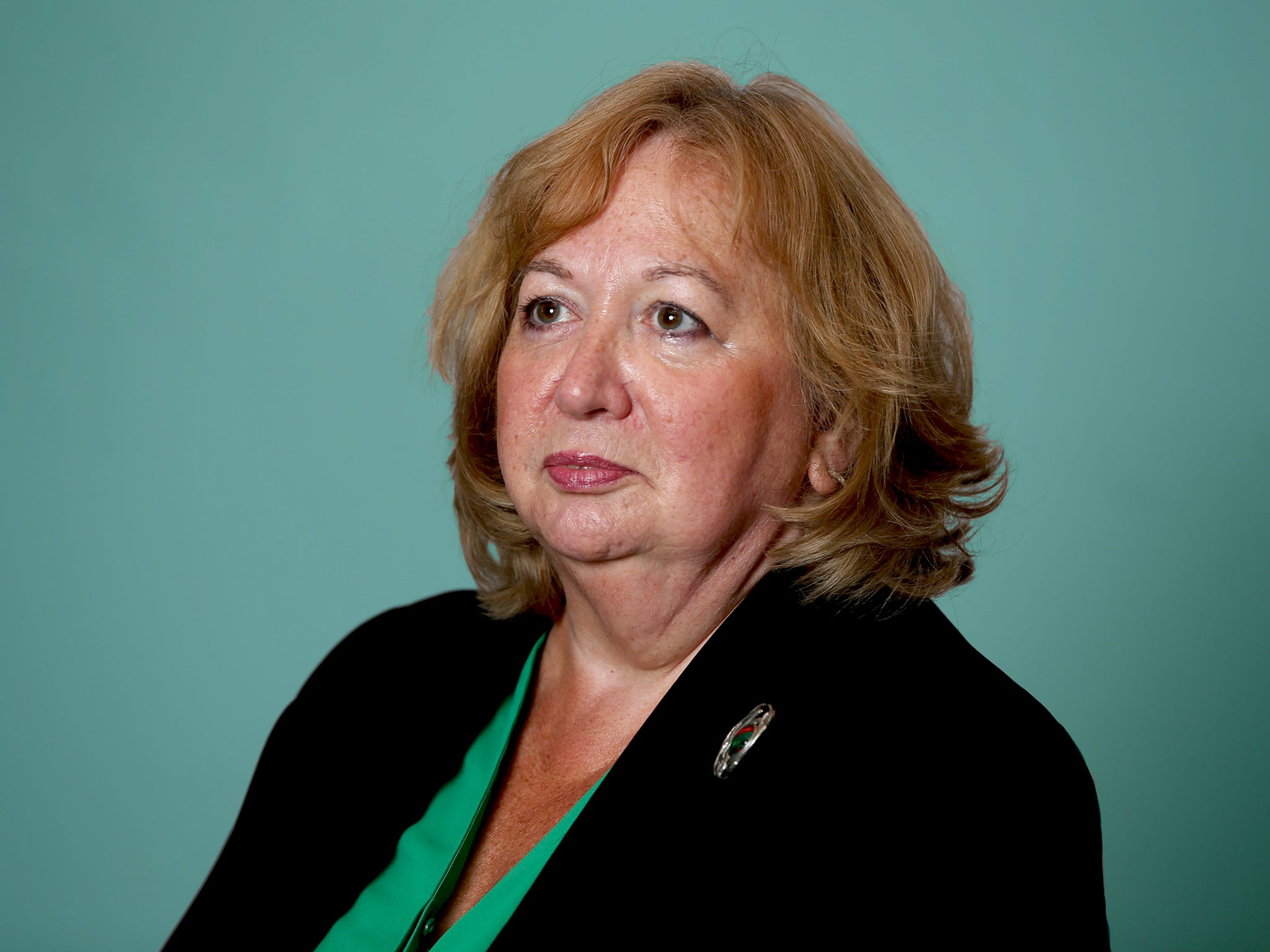
It’s been incredibly busy. Slightly manic,” says Christina McAnea, the new general secretary of Unison, of her first three months in office. The straight talking Glaswegian has spent the majority of her career with what is today the UK’s biggest union, becoming one of its top negotiators in the process. We’re speaking as she prepares to launch her first big campaign, on the vexed subject of public sector pay.
It’s clear that she’s looking forward to it. Moving into the union’s highest office came with what was, for her, an unwelcome surprise: “There was this sudden realisation that as well as being the general secretary of a big public facing union, you’re also the CEO of a small-, or medium-sized company.”
That’s definitely a case of McAnea underselling herself. Unison has 1.3m members, employs 1,300 people and boasts an annual turnover of £165m. Figures like those make her the equivalent of a CEO of a rather large company. If Unison were a business it would be in the FTSE 250 and perhaps the FTSE 100.
Read More:
“I think when you stand, that’s not the thing that’s first on your mind,” McAnea explains. “What you're thinking about is the political direction of the union, the work you can do for the people who pay to join, how to improve the lives of people at work. Then you suddenly find you’re dealing with all these internal issues and what have you.”
It bears repeating that these don’t appear to be wearing McAnea down too much. While Zoom calls aren’t the same as face-to-face meetings, she appears fighting fit and up for the challenge on screen.
Speaking from her home in Streatham, south London, she doesn’t have the obligatory display of weighty, sometimes pretentious books, behind her that are such a fixture among those who regularly appear on TV news bulletins. Instead I spy box files and the detritus of work. This isn’t terribly surprising. The 62-year-old goes in for the hard variety of that.
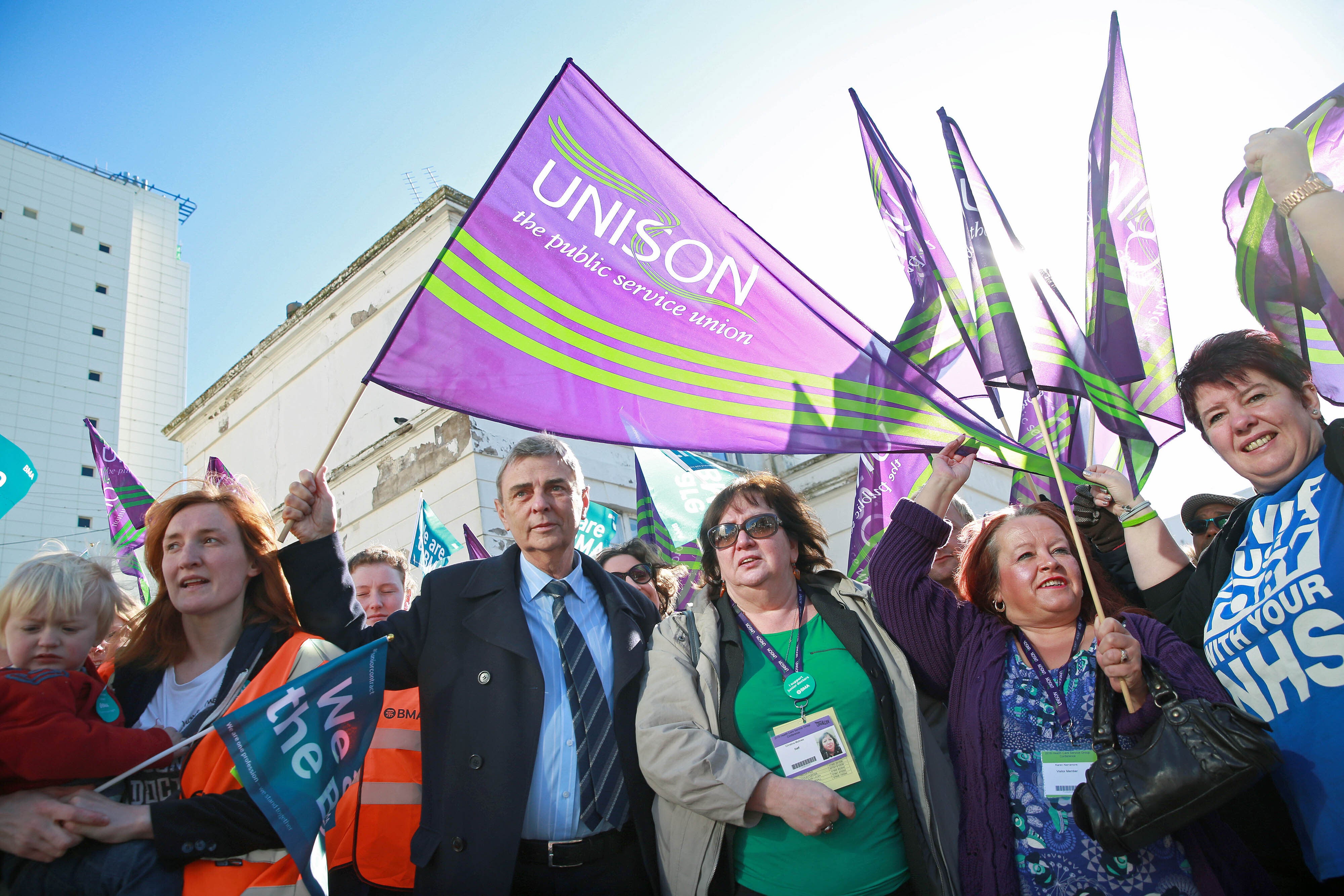
It’s what has taken her from the tough upbringing common to many of her members into a position of real power. Raised by a single mother, she started work as a teenager, and went on to get her education in an FE college.
Often treated as the unloved stepchild of education, it’s a sector she’s understandably passionate about: “Further eduction is completely undervalued. Most politicians pay lip service to it, no more. Unis are great but most of our members get their eduction in FE colleges. Nobody talks about FE, the education maintenance grant cut, the general lack of funding. This is a sector that’s much more likely to attract people from disadvantaged backgrounds. We really need a government that is committed to it.”
It quickly becomes clear that the meetings and the mundanity of running a large organisation haven’t sapped her of energy. McAnea has plenty of it to hammer home the points she thinks need making.
I think it’s time for society to start to think differently about jobs like care work and how we look at them going forward
These she picks up from branch meetings, AGMs, interactions with members. The pandemic has actually afforded her time to attend more of the former than she otherwise might because they’re all held virtually.
One theme emerging from these meetings that McAnea is particularly keen to pick up is the crisis in the social care sector. It’s where some of Unison’s most put-upon workers earn their meagre wages.
Their pay is often barely above the minimum. In reality, it’s sometimes less because travelling time is regularly not included as carers moves from job to job. If they pull night duty they’re paid for their waking time, the subject of a recent court defeat when the union challenged the practice.
Staff work at challenging roles in difficult conditions, which are often made harder by profit-hungry private-equity owners who have scant interest in the results for clients or the people who look after them so long as their money remains good.
“I think it’s time for society to start to think differently about jobs like care work and how we look at them going forward,” McAnea says. She recognises that this is an issue that doesn't always resonate with the general public. But the pandemic has drawn attention to it and McAnea means to keep the pot boiling.
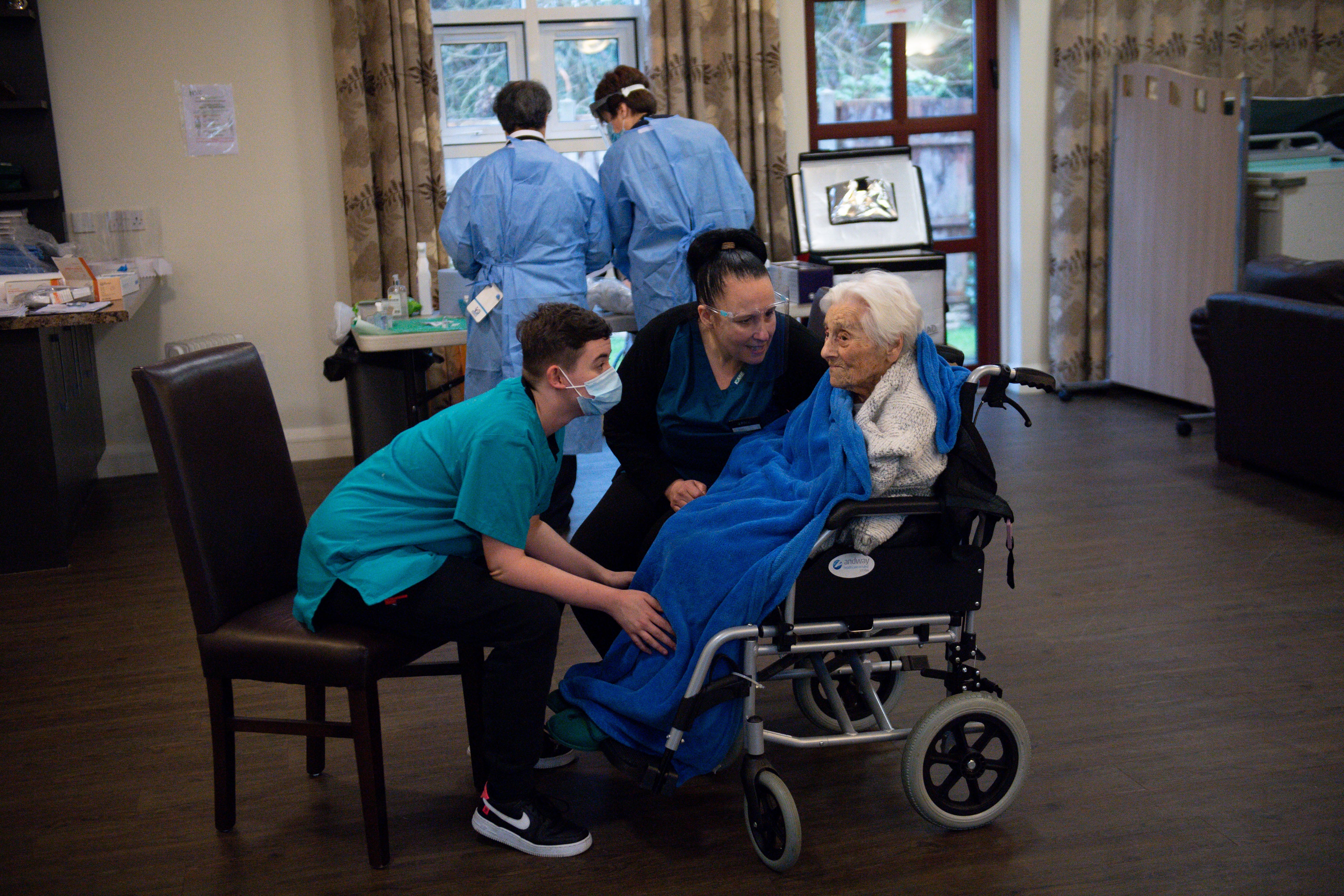
“When it comes to the NHS, almost 100 per cent of the population has an interaction at least once a year. Even if it’s just with the GP, almost everyone in the country will have that. It doesn’t happen the same way in care. We tend to be involved only when it affects us or a family member and there are a lot of misconceptions.
“There are many people who think it will be free to them whenever they need it. They just don't realise it isn’t free until they are banged up against the system.
“But the pandemic has made people more aware of what’s happening and of the difficulties faced by people who have the job of looking after other people. I’d really hate to see that slip away.”
If ever there was a time for the government to be bold it is with the care sector. They should grab it and say we are going to make our names on this. Let’s have a whole new deal
McAnea believes the issue could represent an opportunity for the government to show a better side of itself if it were just willing to grasp the nettle. “If ever there was a time for the government to be bold it is with the care sector. They should grab it and say we are going to make our names on this. Let’s have a whole new deal.”
McAnea shakes her head: “Scotland is looking at it. Wales is looking at it, Northern Ireland too. It’s England that is losing out. At least the governments in Scotland, in Wales they’re saying let’s have the conversation, let’s speak to the unions that are at the heart of the system. Let’s look at how to make it better.”
McAnea chuckles when I point out the irony of it taking a Glaswegian to make the point to the English. “But it’s true, it’s absolutely true,” she says. “England is absolutely losing out.”
On a roll, she continues: “Last week they came out with a consultation on making vaccinations mandatory. There is a real irony in this too. We have been pushing for years, saying that it’s time to bring in minimum standards and pay rates and what they say in response is that it is too difficult. Too many people involved, too many organisations. But now they can bring in mandatory vaccinations?”
If there’s a sector where mandatory jabs are justified isn’t it in the care sector, given the vulnerability of residents when it comes to the virus, and the sheer number of deaths that have occurred in care homes?
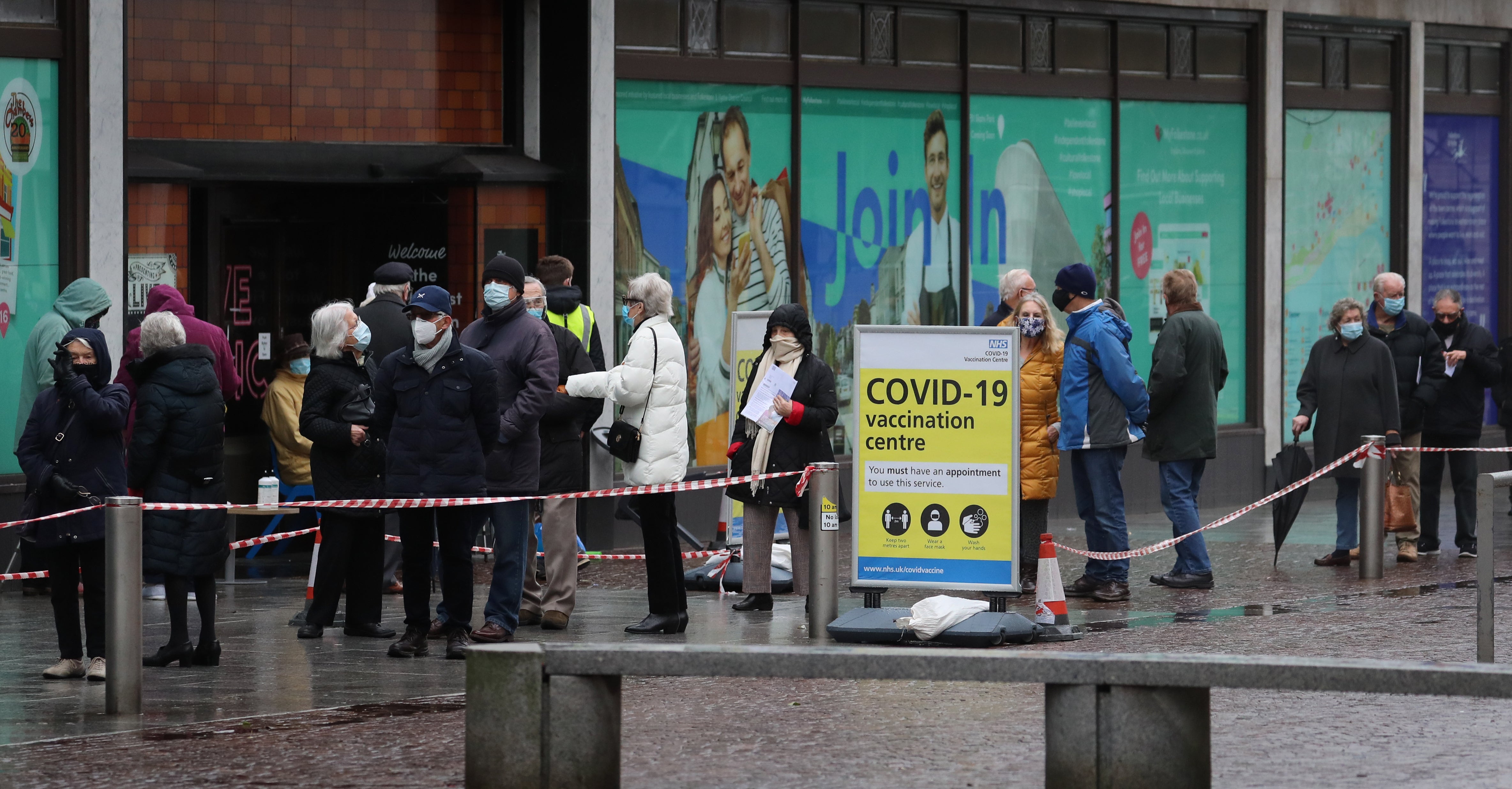
McAnea disagrees. To her mind the idea is “a bit of a distraction”.
“They’re certainly not doing this in any other sector. They’re not doing it in the NHS, for example. To my mind, persuasion would be very much more effective. Remember, this is a sector where you already have huge turnover of staff, a third leave every year. In some areas, in London say, it’s over 40 per cent. There is a high level of distrust among staff. They’re treated poorly, conditions are bad, most don't get sick leave.”
To combat that, Unison says it can point to examples where its members have been involved in efforts to persuade people wary of the vaccination, and it isn’t just in the care sector either.
Her point is well made. It you want to make mandatory vaccinations easier to stomach it might be wise to address some of the issues that make life so very difficult for care workers in the first place.
A rising membership means rising influence. When it comes to the local elections, for example, McAnea urges her members to ask questions, to look at what the candidates are saying on workplace issues
McAnea believes the government could complicate the battle against Covid by failing to engage with these issues. Bringing unions in from the cold, she believes, could assist with that. She maintains a readiness to work with ministers, says she want to regardless of their political differences.
As with many her of her peers, she looks across the Atlantic with envious eyes. “Look at what Joe Biden is doing in the US when it comes working with unions, seeing them not as a threat but as part of the solution going forward.
“It would be so refreshing to have that here. Of course, we want more money and better conditions for our members. But we want them to work in more productive organisations and in more efficient ways. We don’t want money wasted. We want innovation. These are all things where there must be a shared vision, don’t you think? It’s not that we’re totally in opposition. We will work with anyone. We are a broad church.”
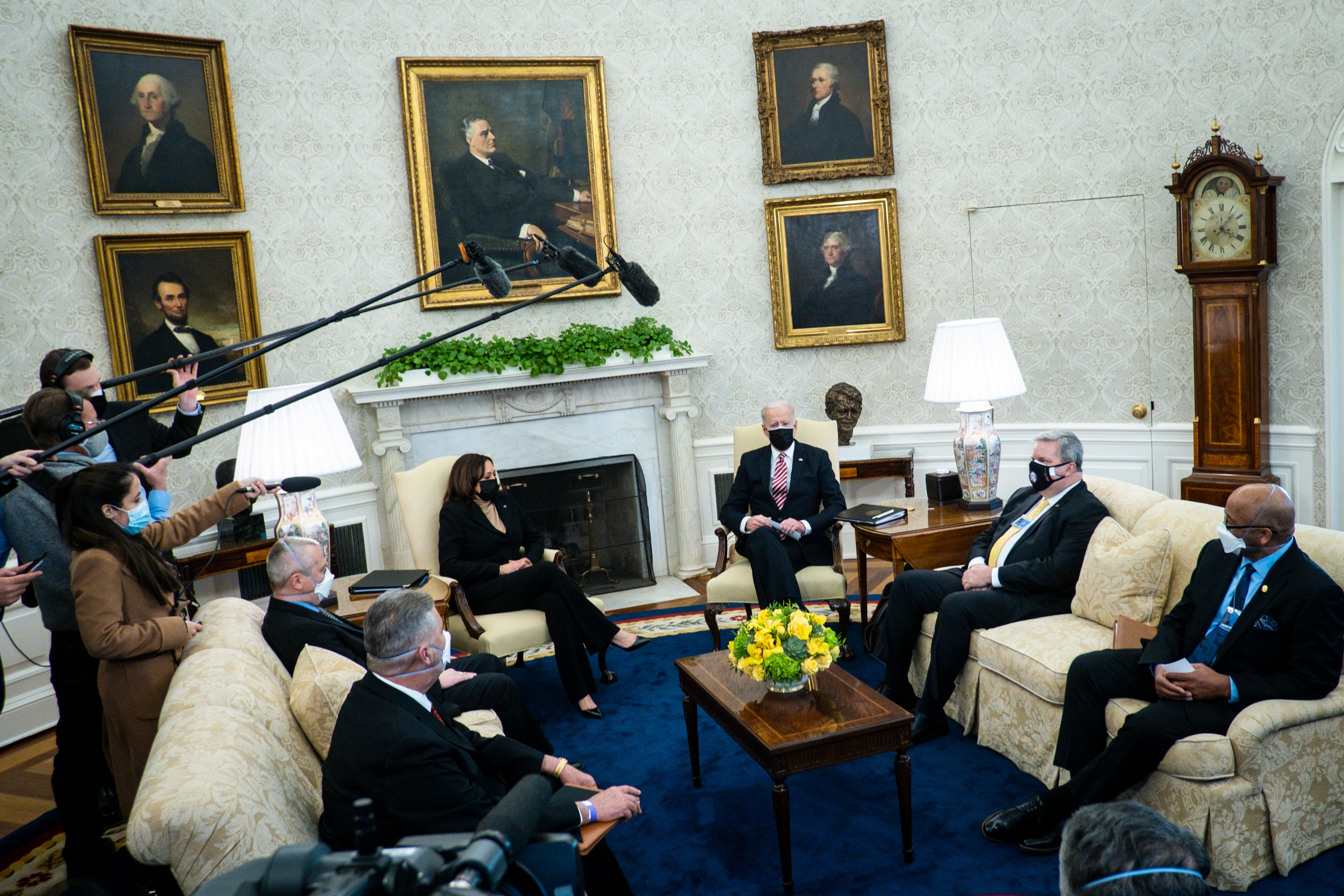
It’s a church that’s getting broader. Unison is coping with a flood of new members, another challenge for its leader. McAnea readily admits the organisation has to prove its worth to them if it wants to keep them and reverse a general decline in union membership. “We’ve put in place a programme to keep in touch. We phone regularly. We make sure they’ve got what they need. We’ve got a programme in place to try to develop their skills.”
A rising membership means rising influence. When it comes to the local elections, for example, McAnea urges her members to ask questions, to look at what the candidates are saying on workplace issues and on other issues of concern.
Read More:
She believes all of the parties must do better and she may be closer to the electorate on this issue than any of them. Perhaps there would be value in them listening to her. Perhaps they’re just fearful. McAnea is passionate without being a firebrand, strong yet persuasive. You can see how she earned her spurs as a negotiator.
In the meantime she is forced to work in a system that imposes tighter rules on unions than almost any other part of society.
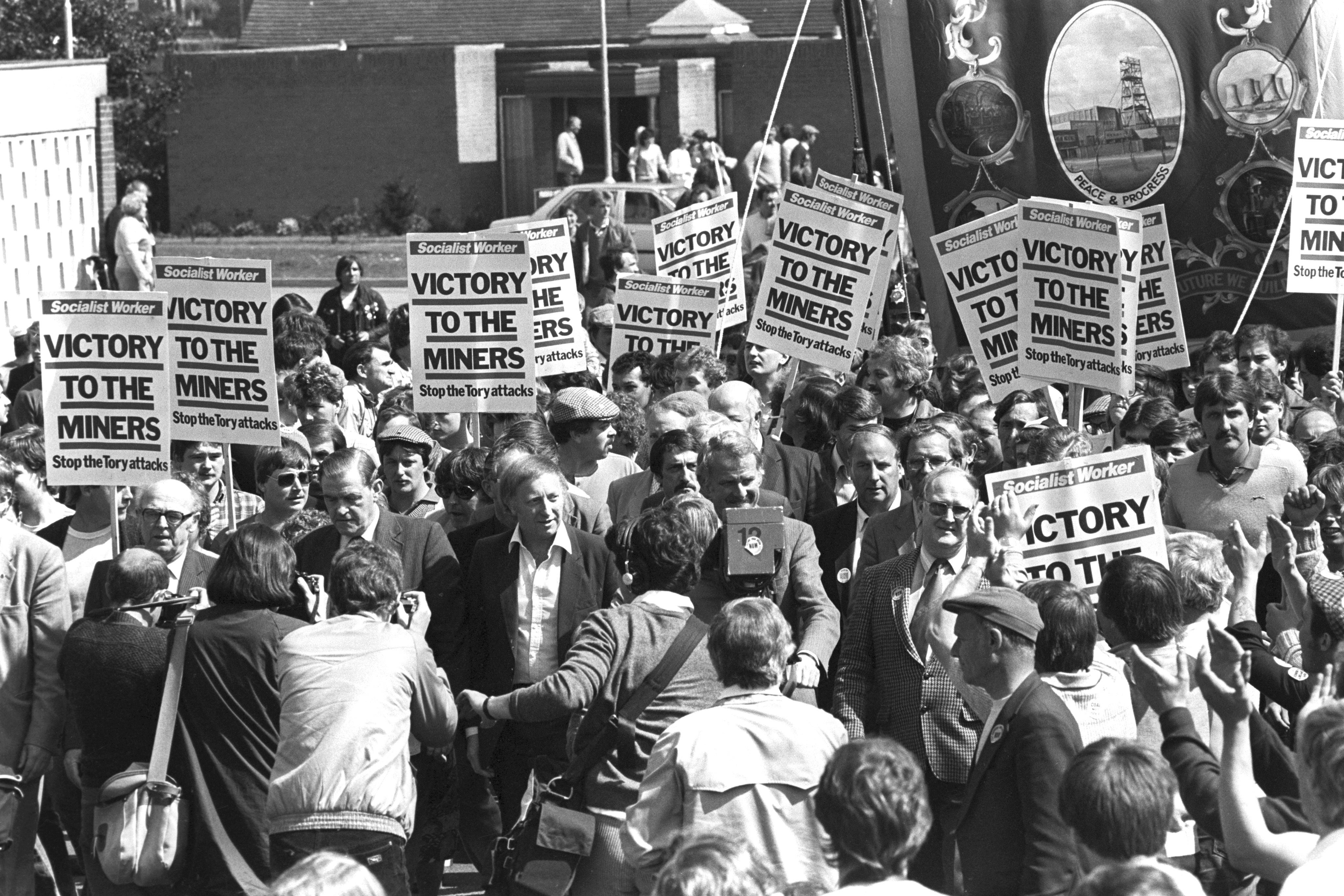
“We’re still living with the remnants of the anti-union laws of the Thatcher era. When I stood to be elected, it had to be through a paper ballot. Our NEC elections have to be carried out by paper ballot. We have tried to engage. We would be happy to invest in secure methods to make it easier for our members to vote. They just don’t want to do that. There are so many restrictions on what we can do, how we can raise money, how members pay their dues, how we can spend. Compare that to the private sector, which has rules about reporting their earnings but nothing like what we’re faced with. As for politics, with the lobbying scandal and all this sleaze…”
Those rules add to the complexities of McAnea’s new role. I ask her the standard question about what she’d like to do after the pandemic. She waxes lyrical about a return to Greece, a favourite holiday destination for her and her husband. She speaks fondly of Malaga in Spain, a much loved city.
You get the impression that she’ll need a break by the time summer rolls around. But what’s also clear is that she’d much prefer to catch one for her members first.
Join our commenting forum
Join thought-provoking conversations, follow other Independent readers and see their replies
Comments